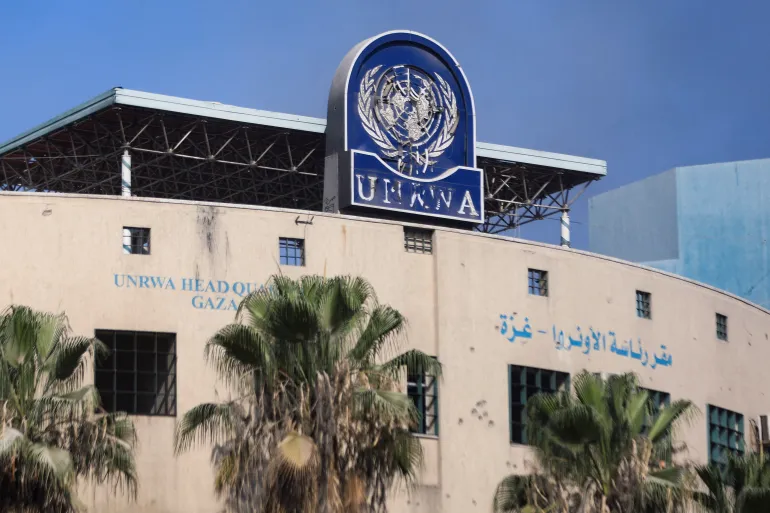Context:
Recently, Israel’s Parliament (Knesset) passed two laws that could significantly impact the working of the United Nations Relief and Works Agency (UNRWA) in providing aid to Palestinian refugees in Gaza, the West Bank, and neighbouring regions.
More on the News
- The new legislations proposes banning UNRWA activities on Israeli territory, severing diplomatic ties, and labelling the organisation as a terrorist entity.
- While the first law prohibits UNRWA from conducting any activities or offering services within Israeli territory, the second law mandates severing Israel’s diplomatic ties with UNRWA and removes legal protections granted to the agency.
- Both laws will become effective within 60 to 90 days after notification from Israel’s Foreign Ministry, with most provisions fully enacted after three months.
Impact of the Laws
- Humanitarian Aid Disruption: UNRWA is the primary provider of essential aid in Gaza, including food, water, and sanitation. This law may disrupt the delivery of critical humanitarian assistance, especially as Gaza’s residents rely heavily on UNRWA for survival.
- Health Services: UNRWA also administers health services, including prenatal care and emergency vaccinations like the recent polio campaign in Gaza, aimed at controlling disease outbreaks. The cessation of UNRWA operations could lead to a gap in health services, endangering public health in Palestinian communities.
- No Alternate Body: While banning the works of UNRWA, the legislation does not provide for alternative organisations to oversee its work.
About UN Relief and Works Agency (UNRWA)
Founded in 1949, the UNRWA was initially set up to provide relief to approximately 700,000 Palestinians displaced by the 1948 Arab-Israeli conflict.
It began operations on May 1, 1950, offering a broad range of services in education, healthcare, relief, and social services.
It operates in Gaza, the West Bank, Jordan, Lebanon, and Syria – the areas where Palestinian refugees sought refuge after displacement.
The agency administers education in over 700 schools and operates numerous health centres across these regions.
- As of 2024, an estimated 5.9 million Palestinian refugees, many descendants of those initially displaced, rely on UNRWA’s services.
UNRWA is primarily funded by voluntary contributions from nations, including the U.S., Germany, and the EU. It also receives a minor allocation from the UN budget, mainly for administrative purposes.
Also Read:
Mahatma Gandhi National Rural Employment Guarantee Scheme (MGNREGS)

